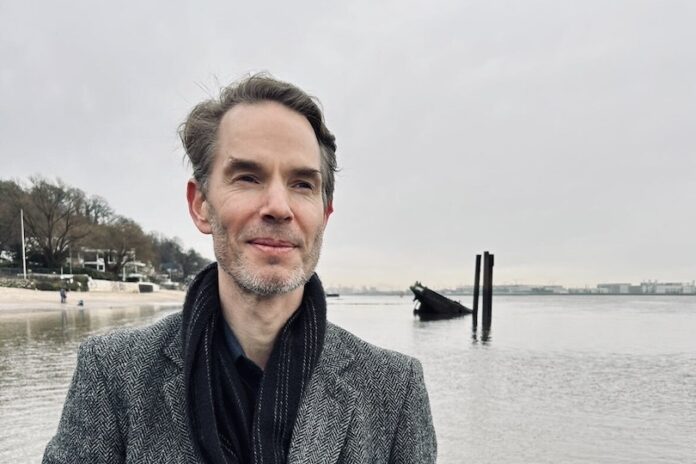Patrick O. Cohrs is a Professor of International History at the University of Florence. He is also the Director of the Centre for History, Strategy, and International Order (CHIOS) at Helmut-Schmidt-University Hamburg, which he co-founded. He has held positions at Yale University, Harvard’s Kennedy School of Government, St Antony’s College at Oxford, Sciences Po in Paris, LUISS Guido Carli University in Rome, Helmut-Schmidt-University Hamburg, and the University of Oxford.
Patrick O. Cohrs is the author of The New Atlantic Order: The Transformation of International Politics, 1860–1933 (Cambridge University Press, 2022), which won the 2023 Prose Award in World History, and The Unfinished Peace after World War I (Cambridge University Press, 2006). He is currently working on A World Transformed, the third and final volume of his trilogy focusing on the transformation of the modern Atlantic and global order, covering the years 1933–2022. For more information, visit: www.patrickocohrs.com.
Where do you see the most exciting research/debates happening in your field?
I consider the global Cold War analysis by Arne Westad and scholars influenced by his work as the most exciting development in my field. Additionally, the work of Jürgen Osterhammel and scholars following his lead in providing a comprehensive global interpretation of the long 19th century transformation is highly commendable. I find the research by Alanna O’Malley and Haakon Ikonomou on international organizations, especially the League of Nations and the United Nations, and the individuals shaping them, very promising for younger scholars.
How has the way you understand the world changed over time, and what (or who) prompted the most significant shifts in your thinking?
My view of the world has evolved through personal experiences, extensive travel, and a growing curiosity about global dynamics. Significant events like the fall of the Berlin Wall in 1989 and September 11, 2001, prompted me to reassess my understanding. Engagement with world history and profound historical thinkers has been transformative in shaping my perspective on global affairs.
You have written two books examining the development of the international order during the 20th century. The first one, The Unfinished Peace after World War I (2006), was published 16 years before The New Atlantic Order (2022). How are these two books connected?
Both books are interconnected, with The New Atlantic Order expanding on themes from The Unfinished Peace after World War I. They provide a new interpretation of international politics, focusing on the challenges of constructing sustainable peace after global conflicts. The trilogy aims to offer a comprehensive view of the 20th-century global order transformation.
What is your interpretation of the birth of the Trans-Atlantic order? How does this differ from other interpretations?
In The New Atlantic Order, I argue that the Trans-Atlantic order emerged as a unique framework after World War I, contrasting with traditional interpretations. The focus is on a transatlantic concert of democratic states shaping a new global structure. The book presents a systemic view of the origins of modern international relations.
In The New Atlantic Order, you offer a comprehensive new interpretation of the Paris Peace Conference and its outcomes. What were the main weaknesses of the post-Paris international order?
The post-Paris international order faced challenges in reconciling diverse interests and establishing a robust security framework. Issues with reparations, postwar reconstruction, and geopolitical transitions hindered the formation of a stable global structure. Weaknesses in dealing with defeated powers like Germany impacted long-term stability.
Do some of the weaknesses of the post-Paris order still have an impact on contemporary politics?
The failures of the post-Paris order resonate in contemporary politics, highlighting the importance of inclusive decision-making and effective security mechanisms. The need for global cooperation and legitimate governance structures remains essential in addressing modern geopolitical challenges.
Do you believe that liberal democracy is currently in crisis?
Liberal democracy faces significant challenges internally and externally, with ongoing debates over its viability and effectiveness. The rise of alternative political models and the erosion of democratic norms pose threats to established liberal democratic systems.
What is the most important advice you could give to young scholars of international relations?
I urge young scholars to study history diligently and develop critical thinking skills to navigate complex international issues. Avoiding intellectual trends and focusing on meaningful contributions to the field will enhance their understanding of global dynamics and historical contexts.




